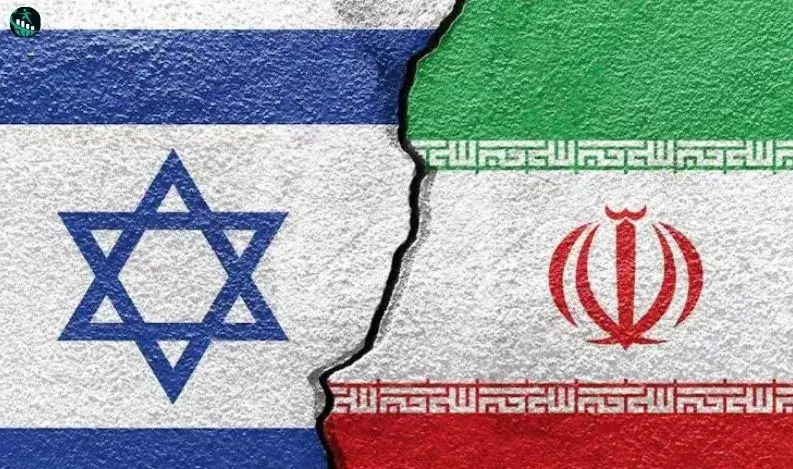
Escalating Tensions Between Iran and Israel: An In-Depth Analysis
In recent months, the geopolitical landscape of the Middle East has experienced significant volatility, largely due to the intensifying conflict between Iran and Israel. These two regional powers have long been at odds, but the recent escalation in direct confrontations has prompted international concern over the potential for widespread instability. This analysis delves into the causes, recent developments, and possible future trajectories of this complex and evolving conflict.
Historical Context
The animosity between Iran and Israel is deeply entrenched, with roots stretching back over decades. Israel views Iran's nuclear ambitions and its support for anti-Israeli militant groups across the Middle East as existential threats. Conversely, Iran perceives Israel's regional military superiority and its close ties with the United States as major threats to its own national security and regional aspirations.
Key Events Leading to Escalation
The tension reached a new height in April 2024, beginning with an alleged Israeli airstrike on an Iranian consular building in Damascus, Syria. The strike, which occurred on April 1, resulted in the deaths of high-ranking members of the Iranian Revolutionary Guard Corps (IRGC), marking a significant escalation in Israel's direct actions against Iranian interests.
The April 2024 Escalation
The attack on Damascus was a critical turning point, leading to a series of retaliatory actions that have dramatically heightened the stakes.
Iran's Retaliatory Measures
In retaliation for the attack on its soil, Iran executed a coordinated drone and missile strike against Israel on April 13, 2024. This response marked one of the few times Iran has directly targeted Israeli territory, indicating a shift towards more overt military actions against Israel.
Israel's Continued Defense Posture
Following the Iranian strikes, Israel has bolstered its defense mechanisms and continues to maintain a high alert status. Israeli officials, while not confirming their involvement in the Damascus strike, have reiterated their commitment to preventing Iranian entrenchment in Syria and disrupting weapon transfers to Hezbollah and other militant groups.
Statements from Iranian Officials
Iranian Foreign Minister Hossein Amirabdollahian has been at the forefront of Tehran's public response, issuing several stark warnings to Israel about the consequences of further military actions.
Amirabdollahian's Warnings
In multiple statements, Amirabdollahian has warned that any new "adventurism" by Israel would be met with an immediate and maximal response. His rhetoric suggests a no-tolerance policy towards further Israeli strikes, with promises of significant repercussions that would make Israel "regret" its actions.
Dismissal of Israeli Military Capabilities
In a bold display of defiance, Amirabdollahian has also downplayed the effectiveness of Israeli military technology, referring to it as "toys" in comparison to Iran's capabilities. This dismissal serves both as a psychological tactic and a domestic rallying cry, reinforcing Iranian resolve against perceived external threats.
International Reactions and Implications
The escalation between Iran and Israel has not occurred in a vacuum. It has drawn sharp reactions from around the world, with global powers and neighboring countries watching closely.
The United States' Position
The United States, Israel's staunch ally, has found itself in a precarious position. While it has traditionally supported Israel's right to defend itself, the Biden administration is also pursuing a path to renegotiate the nuclear deal with Iran. The U.S. has hinted at imposing new sanctions on Iran in response to its retaliatory strikes but has also urged de-escalation and diplomacy.
Broader Regional Impact
The conflict's escalation poses a threat to the stability of the entire Middle East region. It risks drawing in other countries and potentially sparking a larger conflict that could involve multiple state and non-state actors across the region.
Future Prospects
Looking ahead, the trajectory of the Iran-Israel conflict is uncertain. While there is potential for escalation, there is also a window for diplomatic engagement and de-escalation. The international community's role in facilitating dialogue and providing platforms for negotiations will be crucial in shaping the next steps.
The Role of International Mediators
Countries like Russia and European nations, along with organizations such as the United Nations, could play pivotal roles in mediating the conflict. Their ability to negotiate compromises and propose viable solutions will be critical in preventing further military engagements.
Conclusion
As the situation between Iran and Israel continues to develop, the international community remains on high alert. The outcome of this conflict will not only determine the future relations between Iran and Israel but could also have far-reaching implications for global peace and security. It is a pivotal moment that requires careful handling, wise diplomacy, and, above all, a staunch commitment to de-escalation and peace.
Also Read:-



Recent Comments: